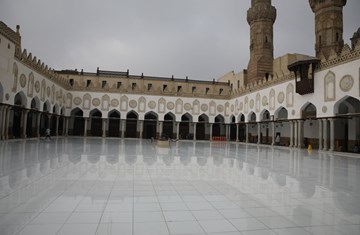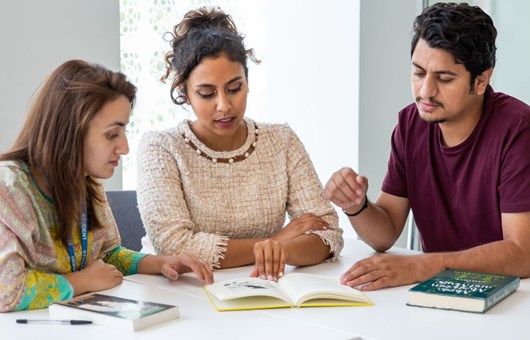Understanding Culture
About the course
Programme fees: £1300
Limited seats available on first-come-first-serve basis.
As a result of globalisation, ways of life and cultural expressions have become more widely shared than ever before. Forms and ideas in the visual arts, music, literature and the performing arts traverse cultural boundaries at an unprecedented pace. We have become ever more conscious of cultural borrowings across geographical, religious, and ethnic boundaries. However, we also see many conflicts arising in the name of preserving perceived cultural purity.
This course is designed to explore different understandings of the notion of culture: both as ways of life and as the products of intellectual and artistic creativity, and why they need to be nurtured, renewed and passed on to future generations. Aspirations to the beautiful and the good in architecture, urban planning and music, the three key domains in which the Aga Khan Trust for Culture (AKTC) operates, mirror human aspirations for the good life. In this context, using case studies, the course will introduce participants to the philosophical underpinnings, methods and impacts of the work of the AKTC.
In addition to lectures, discussions, and workshops, the course will include guided visits to sites of relevance to Fatimid history as well as the Museum of Islamic Art and Al-Azhar Park.
Key Highlights:
- Educational sessions at Al-Azhar Park: Immerse yourself in interactive learning activities with expert faculty from the Aga Khan Trust for Culture and the Institute of Ismaili Studies.
- Historical field trips: Explore key sites of Fatimid Cairo and witness the impact of AKTC restoration projects, including the vibrant Darb al-Ahmar.
- A musical performance: Enjoy a soulful performance by student artists supported by the Aga Khan Music Programme.
- Global Connections: Building lasting connections with Ismailis from around the world.
Course director

Professor Yudhishthir Raj Isar
Course Director
Professor Yudhishthir Raj Isar is currently the Education Director of the Aga Khan Trust for Culture. He is also Emeritus Professor of Cultural Policy Studies at The American University of Paris; Distinguished Scholar/Robert Schuman Fellow at the European University Institute, Florence, Italy in 2018-19 and Visiting Professor, Ahmedabad University. From 2011 to 2016, he was ‘Eminent Research Visitor’ and adjunct professor at the Institute for Culture and Society, Western Sydney University. Founding co-editor of the Cultures and Globalization Series (SAGE), published between 2007 and 2012; principal investigator and lead writer for the United Nations Creative Economy Report 2013; team leader of the European Union’s inquiry ‘Culture in EU External Relations’ and editor of UNESCO’s two reports (2015 and 2017) entitled Re|Shaping Cultural Policies. An official of UNESCO from 1973 to 2003, Isar was notably Executive Secretary of the World Commission on Culture and Development (1994-95). He is also a past President of the platform organization Culture Action Europe.




